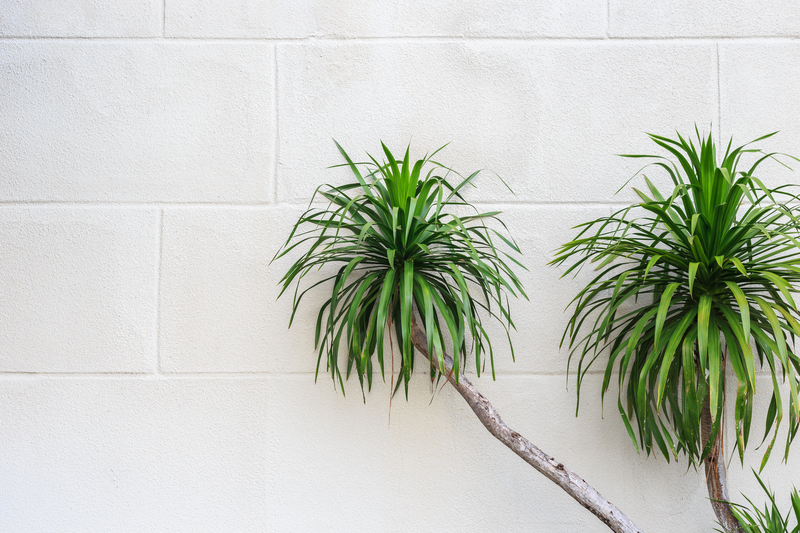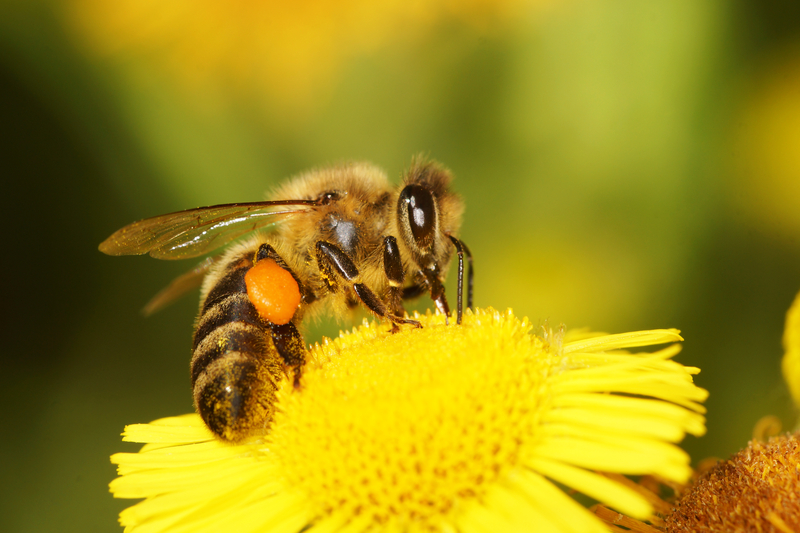Creative Garden Solutions for Child-Friendly Fun
Posted on 12/09/2025
Creative Garden Solutions for Child-Friendly Fun
Looking to transform your garden into an enchanting, safe, and engaging space for your children? Creative Garden Solutions for Child-Friendly Fun can help you unlock the hidden potential in any outdoor area. By designing gardens with innovative features tailored to children's needs, you can inspire imaginative play, learning, and healthy outdoor activity, all while nurturing a love for nature. This guide explores various strategies and unique ideas to make your garden the ultimate child-friendly haven.

Why Are Child-Friendly Gardens Important?
A child-friendly garden isn't merely a playground - it's a sanctuary that encourages exploration, curiosity, and connection with nature. Research continually demonstrates the physical, emotional, and cognitive benefits of outdoor play for kids. These fun backyard solutions cultivate:
- Physical health through movement and fresh air
- Sensory development via touch, smell, and observation
- Imaginative thinking by providing open-ended play opportunities
- Environmental stewardship by nurturing empathy for nature
- Family bonding with shared activities and projects
By employing creative landscaping ideas, you can design a safe, educational, and endlessly entertaining yard for your children.
Design Principles for Kid-Friendly Gardens
Before planning your backyard transformations for kids, it's essential to consider some basic design principles that maximize enjoyment while minimizing risks:
- Accessibility: Ensure paths and main areas are accessible for little legs (and for all ages).
- Visibility: Place features where you can easily supervise children from a distance.
- Safety: Avoid sharp edges, toxic plants, or hard surfaces. Opt for soft turf, mulched areas, and rounded corners.
- Variety: Incorporate different zones--quiet corners, active play areas, sensory spaces, and gardens for growing things.
- Durability: Select robust materials and weather-resistant items designed for rough and tumble fun.
Innovative Play Structures for Small and Large Gardens
1. Living Willow Structures
Living willow dens, tunnels, and likes provide enchanting hideaways that also teach children about gardening basics. They're soft, sustainable, and can be shaped into fairytale nooks which grow and change with the seasons.
2. Natural Playgrounds
Swap plastic for natural play equipment. Fallen logs, boulders, stumps, and sandpits encourage open-ended play, coordination, and creativity. Arrange them into obstacle courses, stepping stone trails, or jumping games.
3. Upcycled DIY Creations
Repurpose materials to create bespoke active play solutions:
- Old tyres for mini climbing walls or swings
- Wooden pallets as forts, platforms, or mud kitchens
- Rain gutters for marble runs or water walls
- Recycled containers for portable sand and water tables
4. Climbing, Swinging, and Sliding
No backyard is complete without opportunity for movement-based fun. Compact swing sets, small slides, and safe climbing frames serve as focal points for active play even in urban or narrow gardens.
Garden Zones that Spark Imagination
1. Sensory Gardens
A sensory garden is filled with plants and features that stimulate the senses:
- Touch: Lamb's ear, ornamental grasses, bark chips
- Scent: Lavender, mint, rosemary, scented geraniums
- Sight: Sunflowers, snapdragons, rainbow chard, brightly painted stones
- Taste: Edible flowers, strawberries, cherry tomatoes
- Sound: Bamboo chimes, rustling leaves, bubbling water features
Let children plant and tend their own patch for a hands-on lesson in nature's wonders.
2. Wildlife and Bug Hotels
Encourage respect for all creatures by creating areas dedicated to wildlife. Bug hotels--simple stacks of bamboo canes, pine cones, or hollow logs--welcome beneficial insects. Birdhouses, butterfly feeders, and native flower beds attract pollinators and birds, offering countless hours of observation and learning.
3. Hideouts and Retreats
Every child relishes a secret nook! Consider these cozy garden solutions:
- Teepees covered in climbing sweet peas
- Canvas tents nestled among shrubs
- Sunshades strung between trees
- Mini treehouses or raised platforms for older children
4. Creative Corners
Dedicate a space for artistic expression outdoors:
- Blackboard walls for chalk art
- Stone or log benches for story time
- Easels for painting natural scenes
- Outdoor tables for crafts using leaves, pebbles, twigs, and flowers
*Incorporate weather-proof storage for art supplies and toys for effortless fun.*
Interactive Water Play
Children are naturally drawn to water play areas. With clever design, water features can double as educational and recreational centers:
- Mini streams: Circulate water with solar pumps and let kids float leaves or build bridges.
- Pebble pools: Shallow rock pools for safe paddling and sensory exploration.
- Water walls: Simple, vertical structures with tubing, funnels, and scoops for endless experiments.
- Mud kitchens: The ultimate zone for mixing mud pies and imaginative play with water and earth.
Edible Gardening Together
Few activities are as rewarding as growing your own food. For children, planting, nurturing, and harvesting vegetables and herbs fosters responsibility, patience, and healthy eating:
- Create low, raised beds filled with easy-to-grow crops (radishes, peas, carrots).
- Plant strawberries in hanging baskets within easy reach.
- Include fast-growing salad pots for instant results.
- Let kids take the lead in watering and harvesting.
*Consider themed edible gardens--"pizza patches" with tomatoes and basil, or rainbow chards for bursts of color and flavor.*
Seasonal Activities for Year-Round Fun
Your child-friendly family garden can offer adventure in every season:
- Spring: Flower planting, bug hunts, egg-and-spoon relays
- Summer: Water balloon games, outdoor picnics, starlit camping
- Autumn: Leaf art, pumpkin growing, harvest festivals
- Winter: Bare branch den-building, bird feeding, painting with colored snow
*Seasonal themes keep children curious and engaged with the natural world all year long.*
Safety Considerations in Child-Friendly Garden Design
The hallmark of outdoor solutions for kids is safety without sacrificing fun. Tips for ensuring a secure play environment include:
- Avoid sharply pointed or breakable items
- Secure play structures and climbing frames firmly (check fixings regularly)
- Position water play features well away from patios or slippery areas
- Use non-toxic, child-safe plants and avoid chemical pesticides
- Ensure fences and gates are robust and secure
- Smooth out trip hazards on paths and lawns
Making the Most of Small Spaces
Not every family enjoys a sprawling yard. Luckily, you can create ingenious playful gardens in limited spaces with smart design:
- Vertical gardens: Use walls, trellises, and fences for climbing plants or pocket planters.
- Balcony play zones: Miniature sand trays, container vegetable gardening, or tented reading nooks.
- Compact features: Foldaway swings, stackable stools, and tabletop water features.
- Movable elements: Portable playhouses, planters on wheels, or removable art stations.
Top Plant Choices for Family Gardens
Some plants are better suited than others for gardens where children play. Look for robust, non-toxic varieties that withstand frequent handling and add beauty or utility:
- Sunflowers - tall, dramatic, and quick to grow
- Strawberry and raspberry canes - delicious and easy to pick
- Tomatoes, peas, and beans - fun for little hands to harvest
- Lamb's ear and ornamental grasses - soft textures
- Calendula and nasturtiums - edible and vibrant
- Herbs like mint, thyme, and chives - aromatic and flavorful
*Always verify that new plants are non-toxic before introducing them to your child's outdoor environment.*
Eco-Friendly Approaches: Teaching Sustainability
Incorporating green garden solutions fosters environmental awareness from a young age. You can model eco-conscious choices by:
- Composting garden and food waste together
- Collecting rainwater for watering plants
- Planting pollinator-friendly flowers
- Building bug hotels and installing bird baths
- Growing food organically
- Using upcycled materials for play structures and art
Engaging the Senses: Sound, Color, and Texture
A truly creative play garden delights all five senses. To amplify garden fun for kids, consider the following:
- Colorful mural walls and painted stepping stones for visual vibrancy
- Wind chimes, bamboo, and musical instruments made from recycled materials for sound
- Sand, water, herb patches, and textured paving to excite touch and smell
- Mirror panels and reflective surfaces for visual play and self-discovery

Family Involvement: Creating Memories Together
Perhaps the greatest value in creative garden spaces for children lies in the moments shared as a family. Involving your kids in designing and building your yard together fosters communication, teamwork, and pride of ownership.
- Let children choose colors, features, and favorite plants.
- Work together on small DIY projects--painting pebbles, assembling planters, or building a compost bin.
- Host regular garden parties to celebrate the evolving space.
Conclusion: Unlocking the Magic of Outdoor Play
With a little creativity and thoughtful planning, any garden can become a magical playground and learning zone. From living willow dens to sensory paths, bug hotels, edible beds, and water features, your outdoor space can nurture active play, discovery, and lifelong curiosity. By investing time and imagination into innovative child-friendly garden solutions, you're not only creating endless opportunities for fun--you're also cultivating cherished family memories and a lifelong appreciation for the natural world.
Begin with small changes or dream big with a complete transformation. Whatever you choose, remember: the best family gardens grow with the children who play in them.
Latest Posts
Effective Strategies to Winterize Your Garden
How to Design Beautiful and Functional Garden Seating
The Art of Reviving Soil from Organic Waste

